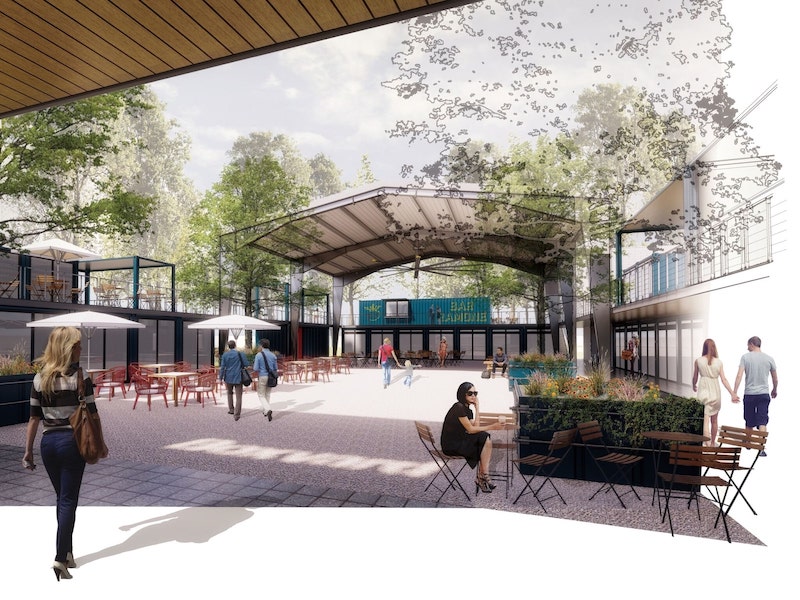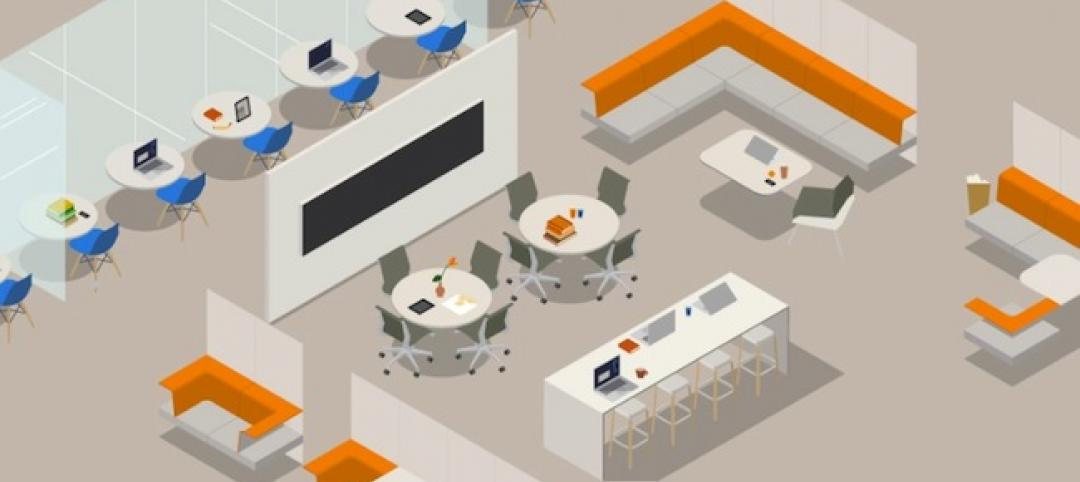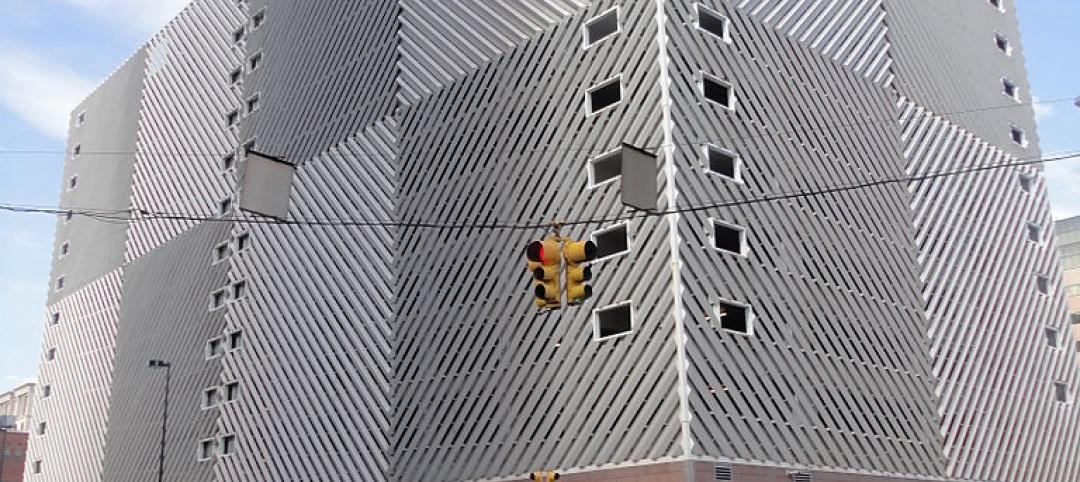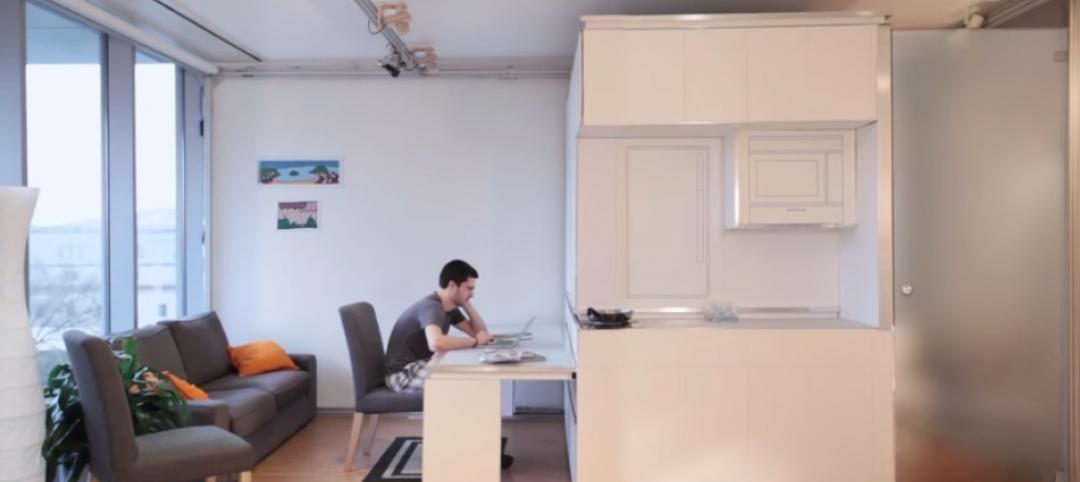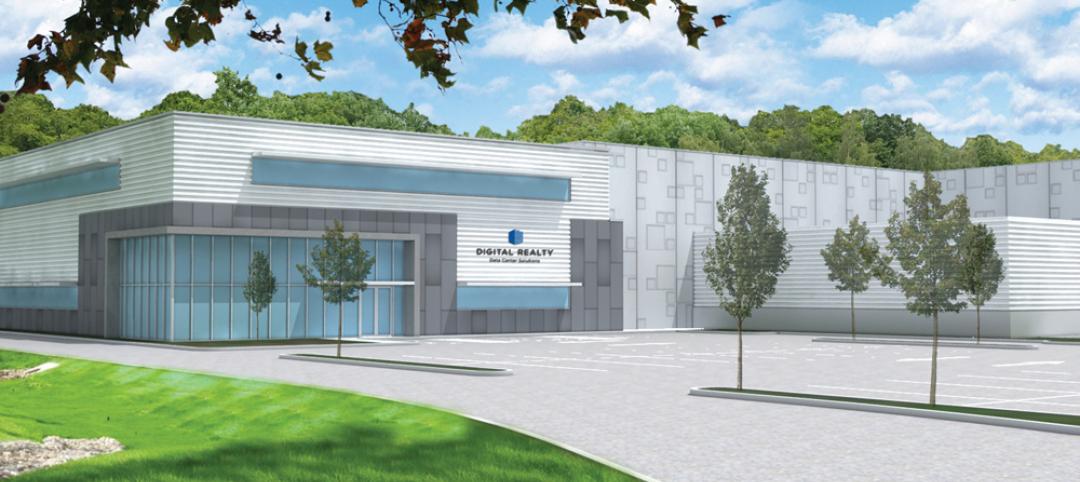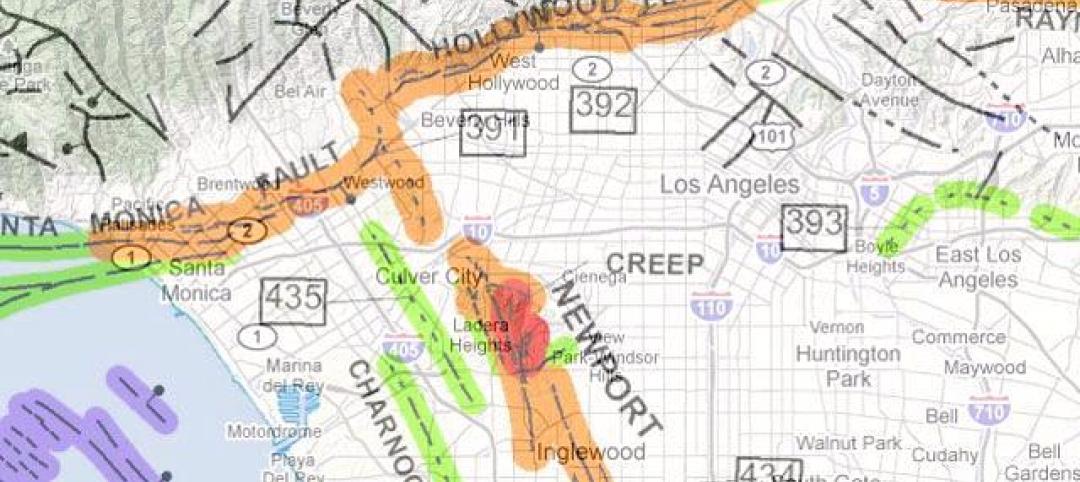The 7,000-acre Research Triangle Park (RTP) in North Carolina, founded in 1959, is the largest research park in the U.S. Nestled near Durham, Raleigh, and Chapel Hill, the park is home to more than 300 companies, 50,000 employees and 10,000 contractors focused on research, biotech, life sciences, and computing.
In March 2019, the Research Triangle Foundation, which owns and manages the park, announced its plans to construct Boxyard RTP, a 15,000-sf development within the park’s Frontier RTP campus made from repurposed shipping containers. Boxyard RTP, which is in the planning stages and is scheduled to open later this year, would be the park’s first food and retail complex. It will have space for up to nine food and beverage vendors, as well as several retailers and service providers.
The food and beverage container spaces will come with partial kitchen equipment upfits. The complex will include covered spaces for seating, special events, and performances.
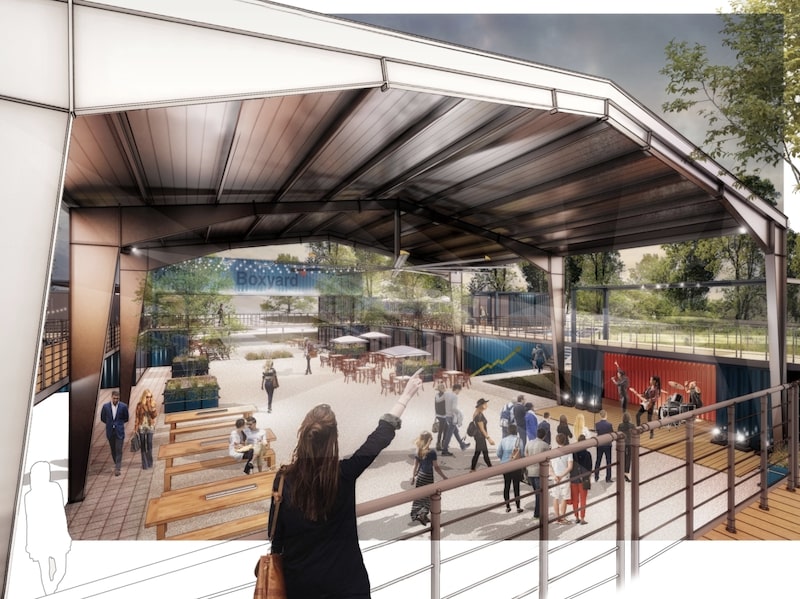 Performance space will face the courtyard at Boxyard RTP. Rendering: CallisonRTKL
Performance space will face the courtyard at Boxyard RTP. Rendering: CallisonRTKL
“Boxyard RTP is a workhorse opportunity for RTP and the region,” says Scott Levitan, president and CEO of the Research Triangle Foundation, in a prepared statement. “Experimental food, libations and retail, cool programming and event opportunities will flip the energy switch for RTP and our neighborhood communities.”
The Boxyard concept takes its name and inspiration from an existing development of 39 repurposed containers in the East Village district of Tulsa, Okla., developed by Nelson + Stowe Development and opened in December 2016. (The contractor on the Tulsa project was Ross Group, and the fabricator was Cisco Containers.)
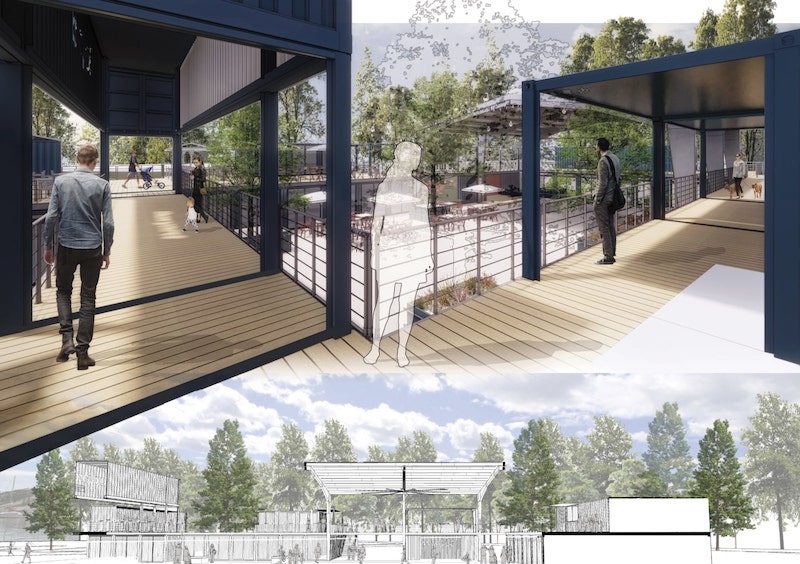 The concept aspires to retain as much of the lot's landscaping and trees as possible. Rendering: CallisonRTKL
The concept aspires to retain as much of the lot's landscaping and trees as possible. Rendering: CallisonRTKL
SHIPPING CONTAINER CONCEPT DESIGN PRESERVES NATURE
At Research Triangle Park, Boxyard RTP’s 38 shipping containers will be situated on a 12-acre wooded lot once dominated by railroad interchanges. CallisonRTKL, which designed the North Carolina concept, is incorporates existing landscaping and trees. The prefabricated shipping containers are modular and can be stacked, so minimal site disturbance will occur during construction.
The modular design is also flexible enough to accommodate the needs of different vendors.
The $7 million Boxyard RTP is organized around a central courtyard, with retail, food, and beverage stalls throughout the public space. The performance stage will face the courtyard, and upper level patios will provide seating and walkways. (Maverick Partners Realty Services is the leasing agent for this project.) As of this morning, Boxyard RTP’s website listed 10 vendors that have committed to leasing space, ranging from a brewery and a virtual-reality game room to a boutique flower shop.
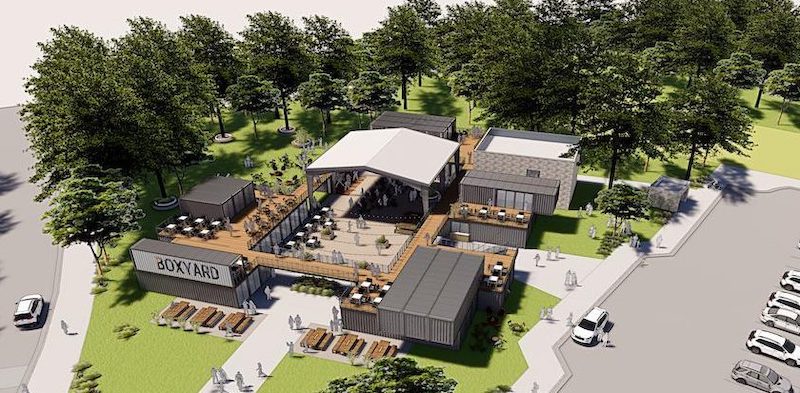 The $7 million Boxyard RTP complex will sit on 12 acres within the park's Frontier campus. Image: WRAL
The $7 million Boxyard RTP complex will sit on 12 acres within the park's Frontier campus. Image: WRAL
Related Stories
| Jun 12, 2014
Austrian university develops 'inflatable' concrete dome method
Constructing a concrete dome is a costly process, but this may change soon. A team from the Vienna University of Technology has developed a method that allows concrete domes to form with the use of air and steel cables instead of expensive, timber supporting structures.
| Jun 11, 2014
5 ways Herman Miller's new office concept rethinks the traditional workplace
Today's technologies allow us to work anywhere. So why come to an office at all? Herman Miller has an answer.
| Jun 9, 2014
Green Building Initiative launches Green Globes for Sustainable Interiors program
The new program focuses exclusively on the sustainable design and construction of interior spaces in nonresidential buildings and can be pursued by both building owners and individual lessees of commercial spaces.
| Jun 2, 2014
Parking structures group launches LEED-type program for parking garages
The Green Parking Council, an affiliate of the International Parking Institute, has launched the Green Garage Certification program, the parking industry equivalent of LEED certification.
| May 30, 2014
MIT researchers create 'home in a box' transformable wall system for micro apartments
Dubbed CityHome, the system integrates furniture, storage, exercise equipment, lighting, office equipment, and entertainment systems into a compact wall unit.
| May 29, 2014
7 cost-effective ways to make U.S. infrastructure more resilient
Moving critical elements to higher ground and designing for longer lifespans are just some of the ways cities and governments can make infrastructure more resilient to natural disasters and climate change, writes Richard Cavallaro, President of Skanska USA Civil.
| May 27, 2014
Contractors survey reveals improving construction market
The construction industry is on the road to recovery, according to a new survey by Metal Construction News. Most metrics improved from the previous year’s survey, including a 19.4% increase in the average annual gross contracting sales volume. SPONSORED CONTENT
| May 26, 2014
New Jersey data centers will manage loads with pods
The two data center facilities totaling almost 430,000 sf for owner Digital Realty Trust will use the company's TK-Flex planning module, allowing for 24 pods.
| May 22, 2014
BIM-driven prototype turns data centers into a kit of parts
Data center design specialist SPARCH creates a modular scheme for solutions provider Digital Realty.
| May 19, 2014
What can architects learn from nature’s 3.8 billion years of experience?
In a new report, HOK and Biomimicry 3.8 partnered to study how lessons from the temperate broadleaf forest biome, which houses many of the world’s largest population centers, can inform the design of the built environment.


